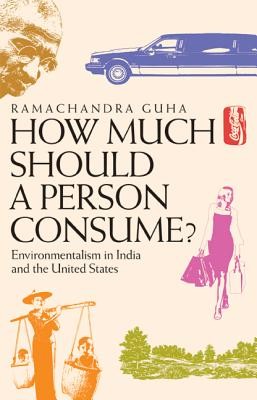
- We will send in 10–14 business days.
- Author: Ramachandra Guha
- Publisher: University of California Press
- Pages: 276
- ISBN-10: 0520248058
- ISBN-13: 9780520248052
- Format: 15.5 x 23 x 1.7 cm, minkšti viršeliai
- Language: English
- SAVE -10% with code: EXTRA
Reviews
Description
Based on research conducted over two decades, this accessible and deeply felt book provides a provocative comparative history of environmentalism in two large ecologically and culturally diverse democracies--India and the United States. Ramachandra Guha takes as his point of departure the dominant environmental philosophies in these two countries--identified as "agrarianism" in India and "wilderness thinking" in the U.S. Proposing an inclusive "social ecology" framework that goes beyond these partisan ideologies, Guha arrives at a richer understanding of controversies over large dams, state forests, wildlife reserves, and more. He offers trenchant critiques of privileged and isolationist proponents of conservation, persuasively arguing for biospheres that care as much for humans as for other species. He also provides profiles of three remarkable environmental thinkers and activists--Lewis Mumford, Chandi Prasad Bhatt, and Madhav Gadgil. Finally, the author asks the fundamental environmental question--how much should a person or country consume?--and explores a range of answers.
Copub: Permanent Black
EXTRA 10 % discount with code: EXTRA
The promotion ends in 23d.05:00:40
The discount code is valid when purchasing from 10 €. Discounts do not stack.
- Author: Ramachandra Guha
- Publisher: University of California Press
- Pages: 276
- ISBN-10: 0520248058
- ISBN-13: 9780520248052
- Format: 15.5 x 23 x 1.7 cm, minkšti viršeliai
- Language: English English
Based on research conducted over two decades, this accessible and deeply felt book provides a provocative comparative history of environmentalism in two large ecologically and culturally diverse democracies--India and the United States. Ramachandra Guha takes as his point of departure the dominant environmental philosophies in these two countries--identified as "agrarianism" in India and "wilderness thinking" in the U.S. Proposing an inclusive "social ecology" framework that goes beyond these partisan ideologies, Guha arrives at a richer understanding of controversies over large dams, state forests, wildlife reserves, and more. He offers trenchant critiques of privileged and isolationist proponents of conservation, persuasively arguing for biospheres that care as much for humans as for other species. He also provides profiles of three remarkable environmental thinkers and activists--Lewis Mumford, Chandi Prasad Bhatt, and Madhav Gadgil. Finally, the author asks the fundamental environmental question--how much should a person or country consume?--and explores a range of answers.
Copub: Permanent Black


Reviews